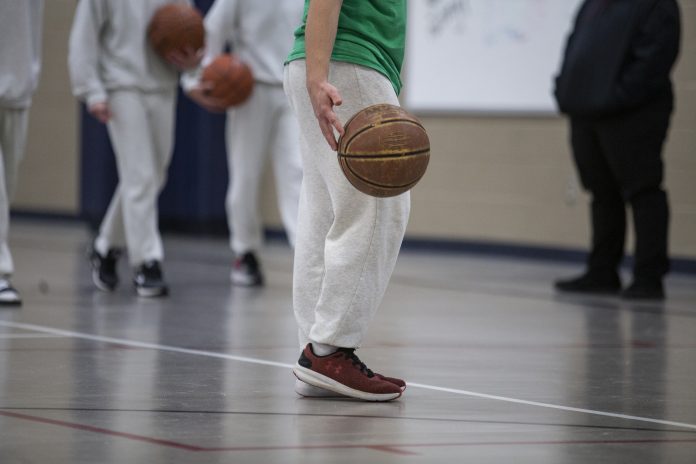

Local authorities’ “Hail Mary” attempts to secure funding for a regional juvenile justice center were unsuccessful this legislative session, but Ector County Judge Dustin Fawcett remains hopeful such a facility will open its doors within the next five years.
The Texas Juvenile Justice Department believes the Permian Basin is in need of a 102-bed facility for those who have been adjudicated of crimes and need to receive treatment and rehabilitative services in a secure facility. Currently, juveniles in the area are sent hundreds of miles from home, oftentimes preventing their parents from visiting and at an average cost of $255 a day.
Attempts to obtain $40 million for the facility failed to gain traction in either the House or the Senate, Fawcett said.
However, Fawcett said all 17 counties within the Permian Basin Regional Planning Commission have passed a resolution in support of such a facility.
“We still have a lot of momentum,” Fawcett said. “Midland County has passed a resolution saying they were going to match our funding in addition to the state funding. Where we go from here is we’re going to continue these talks with all these regional partners.”
Before the next legislative session, Fawcett said the commission will sit down with state lawmakers to ensure state funding will be available for the project and members of the commission will discuss various other funding options.
“We’d be solving a problem that is not just an Ector County problem, and we want to be a good partner in the region, but we also understand Ector County taxpayers should not be footing the full bill for other counties’ juveniles and so we really have to be clever and responsible in how we craft this entire project,” Fawcett said.
Those counties who provide funds toward building the facility would get dibs on beds, but there is the possibility of renting beds to other counties, he said. There are counties east of Interstate 35 in need of beds, he said.
“All of this is about leveraging. We’re gonna have local funds, but we’re also going to need state input for the post adjudication side. That $102 million post adjudication facility was one the TJJD was going to run themselves, not the county. So by us taking on the post adjudication, our argument is if we’re going to be taking these juveniles that otherwise would be in state custody, then that cost should be borne by the state and so they should match us with these funds,” Fawcett said.
In the coming months, they’ll also have to determine exactly how many beds will be needed, especially since both Ector and Midland counties alone are expected to double their population by 2050, Fawcett said.
“We want to look at how many juveniles you can anticipate within the system and understand how many beds we’re truly going to need for the Permian Basin, that way we build a facility for the future and we don’t have to go back to taxpayers or go back to the state for increasing funds,” he said.
Of course, there are the services to consider, he said.
Discussions need to be held with the school districts in Midland and Ector County, along with Odessa College and Midland College.
Fawcett said he wants to prevent kids graduating from “Little Boy Jail” to “Big Boy Jail” and a life of crime by giving them the skills they need to be productive members of society.
“We want to give them a trade. We have all kinds of great vocational training programs within ECISD that I would love to have and take the reins as far as educating our juveniles and make that what we have to offer,” Fawcett said.
High bids
Unfortunately, Fawcett said the county still needs to figure out what it’s going to do with its current pre-adjudication facility.
Ector County issued $25 million in certificates of obligation for a new Ector County Juvenile Justice Center several years ago. The existing facility was built in 1974.
Last year, the county went out to bid for a 64-bed facility that would’ve included beds for pre and post-adjudication kids, but it received no bids. They went out to bid again in January for a much smaller pre-adjudication facility, but they received proposals of $46 million and $54 million late last month, Fawcett said.
He and the commissioners will need to decide their next steps.
He doesn’t think going with a newer, smaller building is the smartest way to spend taxpayers’ money, especially since the regional pre and post-adjudication facility is a possibility, he said.
”I think the regional project is the best way to be responsible with taxpayer funds and also solve the problem of our juvenile justice system. But the way that the certificate of obligation reads, we could utilize those funds for improvements of the (current) facility perhaps,” Fawcett said. “We’ll have to legally double check that and make sure we could if we did need to do a few renovations or band aids in the meantime.”
Fawcett acknowledged the county also has other needs, such as a new library and courthouse.
”I believe that we have the ability to walk and chew gum at the same time. It’s why I ran for this office because I saw all of these things coming to a head at this particular time and I thought that I will be able to help navigate,” Fawcett said.
He’s asked his department heads and other elected officials to create five-year strategic plans.
“We have no current strategic plans anywhere. We currently play, essentially playing Whack a Mole with the county and that no longer works,” Fawcett said. “We cannot be reactive. We need to be proactive planning.”
Increasing numbers
Numbers recently released by the TJJD show juvenile crime is on the increase in several categories in the West Region, which includes Ector County.
According to the latest TJJD report, there have been 204 felony assault referrals so far this fiscal year in the West Region compared to 120 during this time last year. Drug referrals also increased from 224 to 463. Misdemeanor assaults jumped from 395 to 565. Robberies are up, too, from 16 in FYTD2022 to 27 in FYTD2023.
Kevin Mann, Ector County juvenile probation director, said the overall number of referrals in Ector County aren’t any higher than last year. However, he is alarmed by the number of kids committing weapons-related offenses.
“Years ago, we would get a lot of calls when kids had issues with each other, they’d meet in the alley or they meet behind the school, and they would fistfight and but it’s like, you don’t hear that anymore,” Mann said.
“It’s like when they have a problem with each other, there’s always a weapon involved. They’ll drop by the house and shoot it up or now they fight and they pull a knife out,” Mann said. “A lot of it has to do with the drug deal stuff. They pull up to do a drug deal and they have weapons on and there’s a disagreement or an argument and they just start shooting each other. It’s wild.”
The movies, TV and music has glorified that lifestyle and a lack of parenting isn’t helping matters, Mann said.
“These kids are on their own, a lot of them are, and if they want new shoes or clothing or money, they’re not getting jobs. They’re taking it the other way. They’re stealing from people and robbing people and selling drugs. It’s that quick, easy dollar,” Mann said.
Thankfully, most of the kids that spend time in the detention center never get into trouble again, Mann said. The other kids, though, need the rehabilitative services a regional facility could provide before they end up in prison as adults, he said.
“We want to keep everybody in the shallow end,” Mann said.



